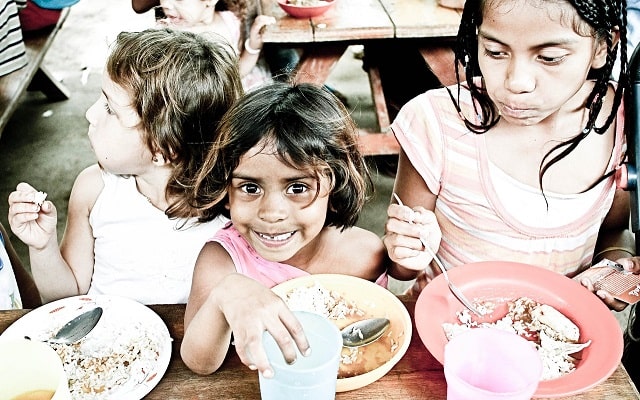Access to adequate nutrition serves as a basic human right and a vital foundation for health, education, and prosperity. Yet millions endure chronic food insecurity worldwide due to economic hardship and uncontrollable circumstances.
Fortunately, practical acts channeling surplus food to those in need make powerful impacts in alleviating challenges.
This article explores impactful ways individuals and organizations can leverage nourishment to confront poverty’s insidious effects. United support sustains dignity for all people amid society’s complex difficulties.
1. Donate To Local Food Banks
Food banks directly intercept excess inventory from sources like grocery chains and farmers salvage nourishing donations reaching tables immediately.
Groups like the Food Bank of East Alabama coordinate wide distribution through partner agencies constantly serving communities facing unpredictable burdens.
Stocking shelves with nonperishables, protein, produce, or cash boosts food security on neighborhood levels through established networks and sustains basic needs with efficiency.
2. Support Community Gardens
Teaching self-sustaining gardening and preserving techniques empowers underserved families long-term through knowledge-building local food systems.
Garden plots and greenhouse spaces cultivate nutrition alongside healthy soil for future harvests. Youth programs spark STEM passions through hands-on lessons while beautifying neighborhoods.
Surplus produces donations or sales fund expansion benefiting whole communities through collaborative efforts addressing the root causes holistically.
3. Volunteer At Soup Kitchens
Preparing and serving hot meals nourishing hungry citizens fills basic physiological requirements and more. Beyond calories, casual dining environments foster dignity and socialization critical for well-being.
Consistent volunteers sustain operations reliably addressing unpredictable bursts exacerbating poverty unpredictably.
Assisting ensures no one slips through the cracks during difficult seasons alongside established charitable services.
4. Donate To School Meal Programs
Children depend on structure nutrition provides supporting development and learning. Yet unstable household finances jeopardize scholastic achievement through no fault of their own.
Sustaining breakfast/lunch/snack programs and portable food items like bars supplement limited resources reaching youth precisely.
Addressing nutritional deficiencies empowers students to maximize inherent talents amid turbulence outside control.
5. Encourage Community Canning
Teaching food preservation skills like canning, freezing, and dehydration stretches household budgets maximizing harvest seasons.
Classes introduce science-based techniques safely extending shelf lives leveraging seasons glut bounty alleviating scarcities aligning supply reliability preventable through education.
Community support connecting expertise maintains knowledge across generations bolstering local resilience.
6. Advocate For Policy Change
Lobbying policymakers protect funding for federal food assistance like SNAP and school meal programs providing macro-level relief otherwise unattainable.
Supporting ‘Meals Tax’ deductions sustains restaurants feeding underserved populations. Pursuing fair wages and workers’ rights indirectly impacts families disproportionately.
Civic participation expresses care for whole communities’ stability through sustainable systemic change.
7. Host Food Drives
Regular donation drives consistently stock local aid like pantries, soup kitchens and charities relieving unpredictable high-needs seasons through collaborative support.
Workplace, church, and school-based collections leverage relationships and foot traffic directing surplus to networks directly serving neighborhoods facing volatility.
With diverse locations, sustained giving intercepts temporary or periodic constraints facing households.
8. Support Agricultural Jobs
Rural poverty persists where stable employment is lacking. Investing in sustainable farms and fisheries creating livelihoods through agritourism, specialty crops or conservation simultaneously produces nutrition revitalizing impoverished regions holistically.
Subsistence operations sustain dignity and food independence for generations through ecological stewardship. Meaningful livelihoods stir self-sufficiency alleviating deep-rooted issues systematically.
To Wrap Up
By creatively channeling excess food through education, jobs, and nourishment, compassionate communities alleviate poverty’s innumerable dimensions strategically.
Coordinated efforts strengthen self-reliance amid instability through dignity and interconnectedness.
With perseverance and cooperatively leveraging resources, communities foster resilience by confronting socioeconomic complexities with empathy, wisdom, and care for all people.


